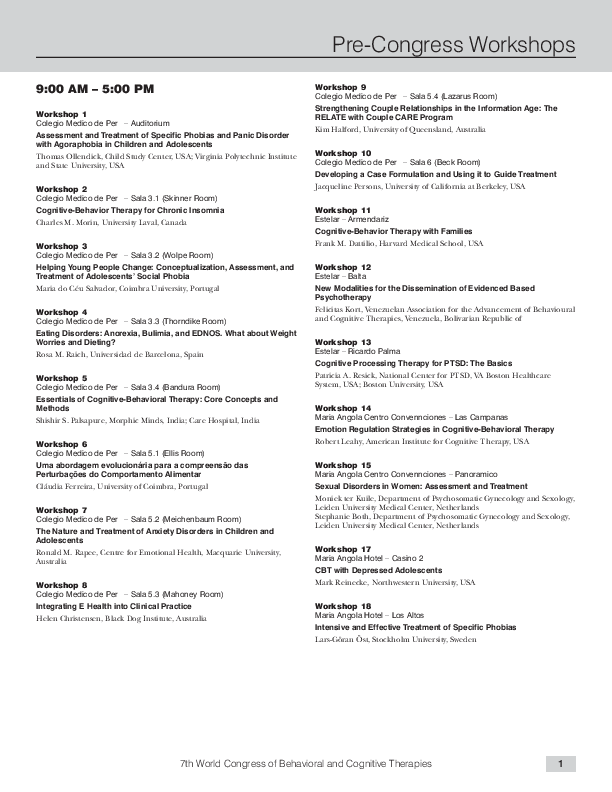- What Is Dialectical Behavioral Therapy
- Step By Step 23dialectical Behavioral Training Program
- Step By Step 23dialectical Behavioral Training Schedule
- Step By Step 23dialectical Behavioral Training Pdf
- Step By Step 23dialectical Behavioral Training Plan

A bachelor's degree is the first step toward becoming a mental health clinician. While there is no specific field of study required, students might consider majoring in psychology, social work. Jonathan Tarbox, Doreen Granpeesheh, in Evidence-Based Treatment for Children with Autism, 2014. Behavioral Skills Training. Behavioral Skills Training (BST) is a treatment package consisting of multiple treatment components that has been proven to be effective for training a wide variety of skills, simple and complex, in people in a wide variety of populations, including children and adults.

What Is Dialectical Behavioral Therapy
- Identifying the Interfering Behavior In Step 1, teachers/practitioners identify (a) an inappropriate behavior (e.g., hitting, grunting, falling to the floor) that is serving some type of communicative function and that is being reinforced (perhaps unknowingly) so that it continues to occur on a regular.
- Step 3 after you have printed the booklet, watch this video.
Step By Step 23dialectical Behavioral Training Program
This group therapy is for clients that may be struggling with any of the following:
- Poor self-esteem
- Excessive Worry
- Impulsivity
- Unbearable Emotional Pain
- Overwhelming Feelings
- Self-destructive Behaviors
- Self-injurious Behaviors
- Chaotic/ Stormy Relationships
- Poor Boundaries
- Drug or Alcohol Abuse
- All or Nothing Thinking
- Confusion About Self
Step By Step 23dialectical Behavioral Training Schedule
Dialectical Behavioral Therapy (DBT) is a structured therapeutic treatment based from Zen Mindfulness practice placing emphasis on the balance between acceptance and change. Outcomes of this class will provide DBT clients with tools to recognize and increase awareness of thoughts, feelings, and body sensations while strengthening attention to the present moment in order to respond with healthy strategies to maintain control, cultivate living life from a place of “wise mind,” gain interpersonal skills to improve relationships, and begin building a life worth living.

Our Dialectical Behavioral Therapy (DBT): Skills Training Group will provide a validating and safe environment for clients to learn coping skills to manage stress they encounter in life. Dialectical Behavioral Therapy teaches skills that help reduce the intensity and frequency of overwhelming emotions, while also offering guidance for navigating these distressing emotional moments. DBT skills include:
Mindfulness—Mindfulness is a core concept within DBT that promotes full awareness of your present moment (i.e. thoughts, feelings and physical sensations) without judgment and without trying to change it. Mindfulness strives to focus the mind, direct attention and achieve a better understanding of feelings.
Step By Step 23dialectical Behavioral Training Pdf
Emotional Regulation—Emotional Regulation concentrates on taking control of emotions. Difficulty controlling extreme emotions can lead to impulsive or ineffective behaviors. The goals of Emotion Regulation are to better understand the emotions you experience, reduce emotional vulnerability and decrease emotional suffering.
Distress Tolerance—Pain is a part of life and being unable to deal with pain may lead to impulsive or destructive behavior. The goal of Distress Tolerance is to help people better cope with painful or distressing moments in more effective ways that won’t make the situation worse.
Step By Step 23dialectical Behavioral Training Plan
Interpersonal Effectiveness—The focus of Interpersonal Effectiveness is building and maintaining positive relationships. This module introduces tools to express beliefs and needs, set limits and negotiate solutions to problems without threatening relationships with others. Interpersonal Effectiveness skills can help in taking care of relationships, balancing your needs with the demands and needs of others, balancing things you want to do with things you ought to do and building/developing mastery of self and self-respect.
The group will be led by Elyssa Reid Ed.S., LPC, CRC, NCC and Scott Leenan M.S., LPC, CRC. Once enrolled in the program, clients who do not have a DBT therapist may be assigned a clinician to meet with once per week. The fee for the group is $125 per week. Space is limited to 10 participants so please register as soon as possible to ensure your space. For more information, you may contact us at Intown Counseling and Wellness at 404-478-9890 or e-mail us at admin@intowncounseling.com




